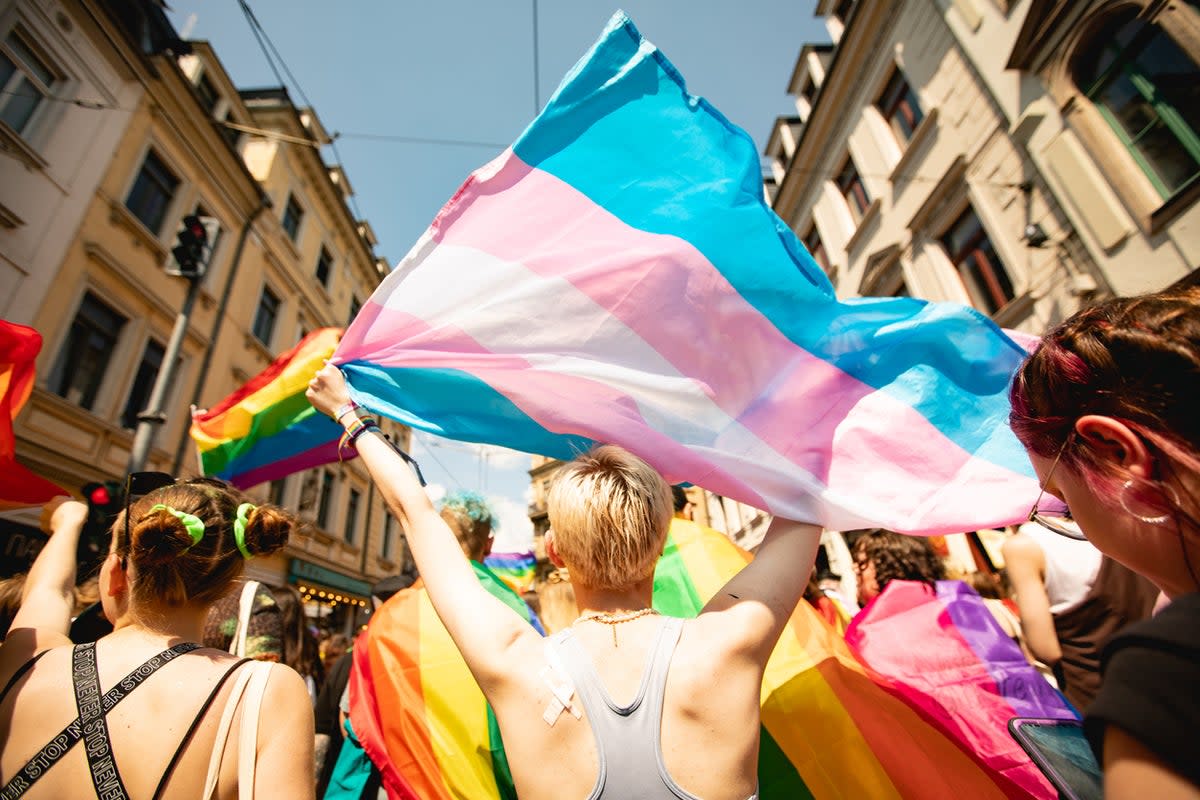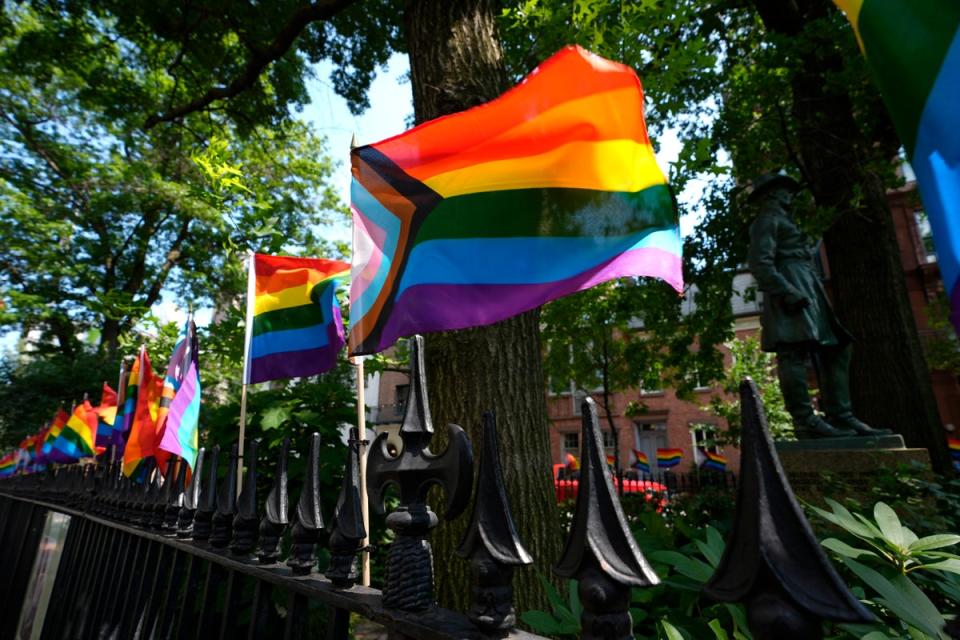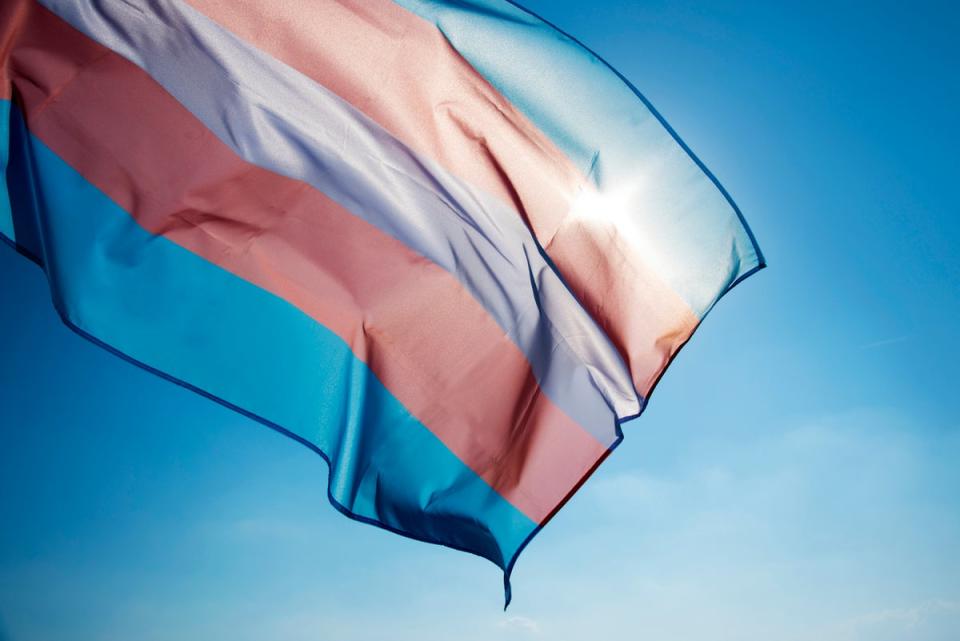How to support LGBTQ+ youth during Pride Month and beyond

Pride Month is nearly over — but the LGBTQ+ community needs support all year long, particularly from state legislators.
There are currently more than 500 anti-transgender bills being introduced in the United States, including 25 states that have introduced bans on gender-affirming healthcare.
In Florida, there’s the controversial “Don’t Say Gay” law, which stated that teachers couldn’t discuss gender or sexual orientation as part of their classroom teachings — although a legal settlement in March declared that.students and teachers could discuss LGBT+ people, hang pride flags and still have on-campus LGBT groups.
While many anti-LGTBQ+ bills fail to become law – with a federal judge earlier this month striking down a 2023 Florida law that blocked gender-affirming care for transgender minors – these bills still jeopardize the safety of LGBTQ+ individuals, and children, in the US.
Speaking to The Independent, three LGTBQ+ advocacy groups shared approaches for supporting queer youth during Pride Month and beyond it.
Have candid discussions with children and adults about the effects of anti-LGBTQ+ bills
Speaking to The Independent, Ray McKinnon – the executive director of Parents, Families, and Friends of LGBTQ+ people (PFLAG) in Charlotte – spoke specifically about House Bill 808, which prohibits access to gender-affirming healthcare to minors in North Carolina. He claimed that, although the idea behind the law is to protect children, that’s not what’s actually happening.
“There is no world where a person is going to take a random, trans juvenile and force them to do things outside of a consultation, without medical professionals and parents,” he said. “The harm that is done with House 808 can be exceptionally long lasting. When a person’s identity doesn’t match who they are medically, they should have a possibility to do something about that. We know that to place these barriers in front of parents and kids is not at all about protecting kids.”
Janson Wu, the senior director of advocacy and government affairs at The Trevor Project, went on to share how he’s seen state laws affect young people’s mental health. He noted that, in response to the organization’s 2024 US National Survey on the Mental Health of LGBTQ+ Young People, 90 per cent of participants said their well-being was negatively impacted by recent politics. With that in mind, he shared the reminder that despite the hateful rhetoric about the LGBTQ+ community, it doesn’t mean that queer people are on their own.
“For every adult who would attack your existence to gain power, there are so many more adults who believe that you are perfect and deserving of support exactly as you are, including if you are LGBTQ +,” he explained. “These laws have been passed by a small and vocal minority, extremists. And where I put hope in is that we’re stronger when we fight back together.”
Be an accepting adult

During its 2019 national survey, The Trevor Project found that “LGBTQ+ youth who report to having at least one accepting adult [in their life] were 40 per cent less likely to report a suicide attempt” in that past year. Patti Hearn, the executive director for Seattle Pride, said this data tells us how important that one adult is.
“All they need to do is express care, support, and openness to kids,” she explained. “I think adults that work with kids, such as teachers, have a lot of responsibilities. For example, they could be walking down the hall and notice something that could be bullying, but they’re also in a rush to grade papers. However, it has to be top of mind that you have to intervene, 100 per cent of the time. We need to do that for the most vulnerable kids who are marginalized in all different ways.”
McKinnon also expressed how simple words of support from loved ones can go a long way. He explained that ever since he came out as gay in 2022 – after being married for 18 years to a woman who he shares four sons with – his loved ones have encouraged him to be his authentic self. He also referred to The Trevor Project’s statistic about how meaningful this support is to children who are a part of the LGBTQ+ community.
“I don’t think people fully appreciate how important that is,” he explained. “We don’t realize how just our presence and giving people permission to be who they are saves lives.”
Educate yourself as someone who’s not a part of the LGBTQ+ community
There’s a lot that an ally can learn. Wu referenced some of the free resources on The Trevor Project’s website, including explainers about gender identity and how vital it is to acknowledge that we don’t need to abide by societal gender roles.
“Through taking the opportunity to educate yourself, you’re showing so much support for young people as they’ve identified themselves,” he said. “Some of The Trevor Project’s resources also include a checklist to see if your school is LGBTQ affirming and a guide on how to testify against harmful bills. We can all do our parts to lessen that burden through self education.”
McKinnon also highlighted how allies should educate themselves about organizations that want to protect the well-being of LGBTQ+ people in the country. “Some organizations are working with kids to give them spaces where they can be safe,” he explained. “There’s nothing that compares to coming into a space and having permission to be yourself. Where you’re not having to dial yourself back, like where you can’t be so masculine or so feminine.”
Steer students away from hateful rhetoric about people in the LGBTQ+ community

Both within and outside of the LGBTQ+ community, hateful rhetoric regarding queer young people can exist. As allies, we have to recognize transphobia and homophobia when we see it and point out the impact it has, especially when talking to children.
McKinnon pointed out how state laws affect the safety of queer youth, referencing the Parents’ Bill of Rights in North Carolina, an act to “enumerate the rights of parents to direct the upbringing, education, health care, and mental health of their minor children.”
“Legislation like that could force teachers to essentially out kids. And it’s showing us that: ‘Oh, the right thing to do is to bully and harm,’” he claimed. “You cannot change a person’s sexual orientation or gender identity. Bullying them or making them feel less than that isn’t going to do it.”
Wu also shared simple ways we can nudge students away from transphobic or homophobic rhetoric, acknowledging that children often live by example. Ultimately, it’s the adults in their lives, whether it’s parents, family members or teachers, who have to role model respect and kindness towards the LGBTQ+ community.
“I think the most effective way of this is through putting up the Pride Flag, or using a person’s preferred pronouns,” he said.
Have discussions about gender identity
Hearn acknowledged that, in her experience working with children, they’re extremely open to learning and inquiring about the meanings of identity, from the topic of pronouns to what it means to be non-binary.
“They naturally question some of the things that we say are so specific that are boy things or girl things, particularly when they’re younger. They’re curious about things like that, why blue has been for boys and pink is for girls. Why does it have to be that way?” she explained. “I think when we let them be more like they want to naturally be, it ties into a realm of things to consider, surrounding positive masculinity, like adult men being nurturing and caring.”
Wu agreed that when we question why gender norms exist, we create a space for people to learn without judgment, which also widens our knowledge about gender identity.
“We recognize the beautiful and broad diversity of our identities in so many different contexts,” he explained. “Why would that not be true when it comes to gender as well? We should be listening, and we should be trusting young people when they tell us who they are.”


